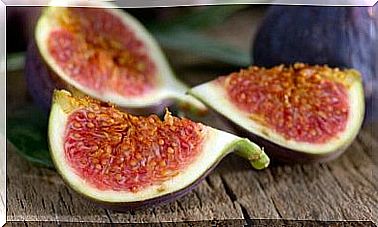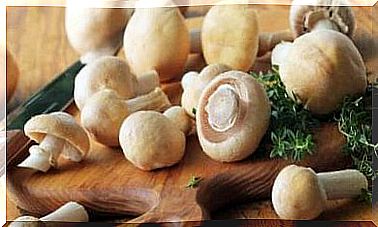Field Horsetail: What Is It And What Is It Used For?
Field horsetail is known for its diuretic properties, but its benefits go far beyond this simple property. This plant brings many benefits, both internally and externally.
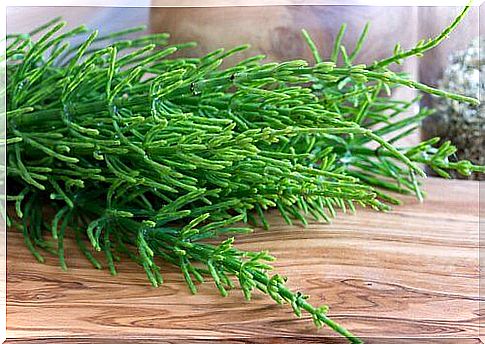
Horsetail is a plant that has many medicinal and therapeutic benefits. Due to its similarity to the tail of horses, it is sometimes referred to as a “ponytail”.
To explain all the benefits of this plant on health, it is necessary to start by listing its wonderful properties which range from simple anti-inflammatory treatment in case of wounds and blows to the development of creams and treatments to combat the premature aging.
This plant grows naturally in areas near a water point such as a lake, a river, a swamp or an aquifer.
It is a prehistoric plant which, at present, exists in different regions of the planet; it is found in large tracts of land in Asia, Europe, North Africa and North America.
Horsetail stands out for its many benefits on the body. Discover in the following article the uses, components and benefits of field horsetail.
Some basic information about field horsetail
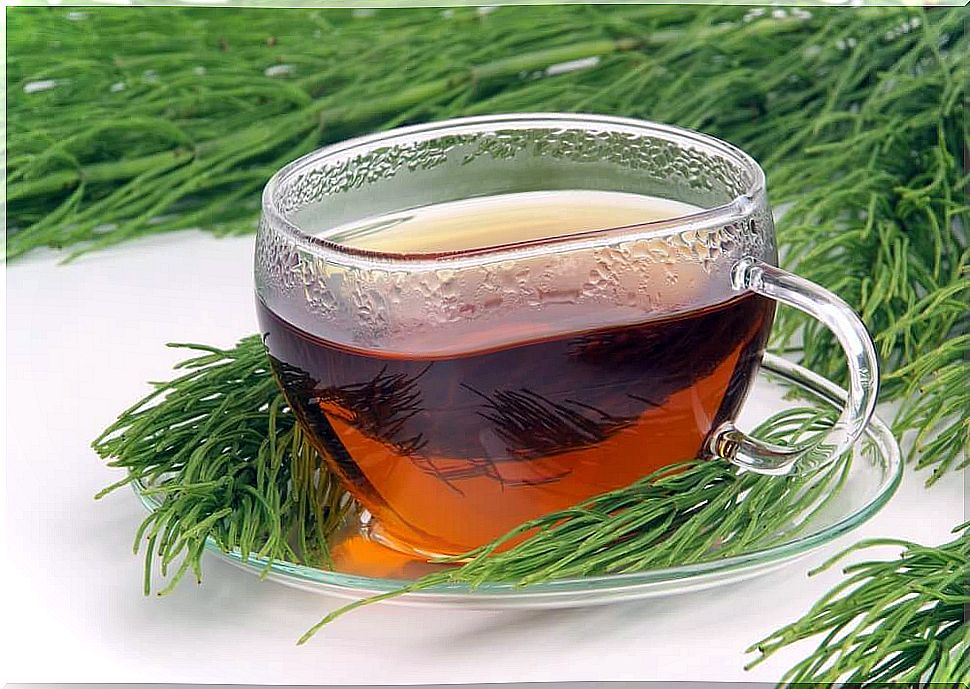
Horsetail is a species that never stops growing. This means that it does not obey a cycle of expansion according to the seasons or the places: its roots are very deep and it constantly produces tubers which are specific to this species.
Among the functions assigned to it, the following functions stand out:
- a skin regenerative property
- a high content of vitamin E and vitamin D
- a high content of proteins and amino acids (which are essential for the preparation of creams and ointments against premature aging)
- a powerful detox product of natural origin
- antiseptic and anti-inflammatory properties
- a healthy weight loss aid
Its chemical composition
This plant has a combination rich in chemical elements which make it an ideal plant to treat many diseases:
- its minerals:
- silicon, manganese, aluminum and potassium
- its phytonutrients:
- saponins, phytosterols, phenolic acid, caffeic acid, alkaloids, tannins and bioflavonoids.
The health benefits of horsetail
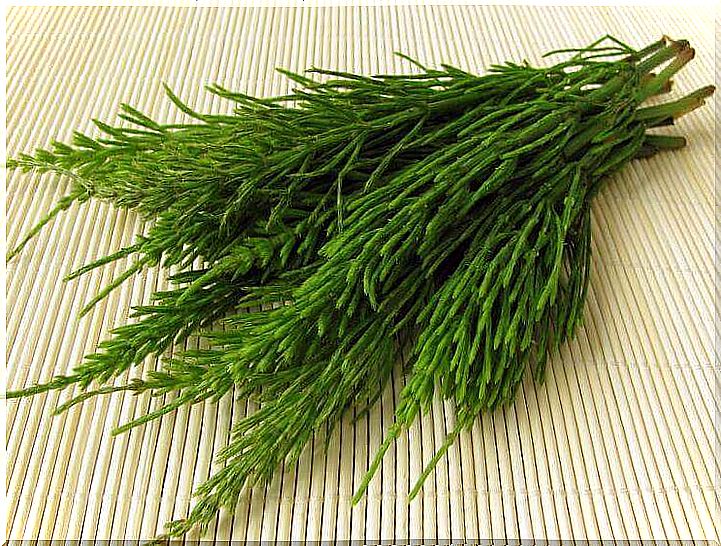
Field horsetail is widely recommended to treat a wide variety of symptoms. It also helps fight light and moderate pain.
Healing property
Thanks to this property, it promotes the healing of open wounds. It is particularly effective on wounds that take time to heal.
The protein that makes this possible is “tannin”: it exerts an action on the formation of new healthy tissues.
This plant is an excellent natural astringent which has no known negative effects on the skin.
Anti-bacterial and anti-fungal properties
Scientific studies show that the essential oil of this plant fights, eliminates and reduces the reproduction and spread of certain bacteria such as E. coli bacteria and salmonella.
Its effectiveness in combating different strains of fungi such as Candida albicans has also been proven.
Calming and anti-inflammatory properties
The components of field horsetail help counteract tissue inflammation caused by itching and physical trauma.
In addition, it can be used to relieve pain of moderate intensity.
The aesthetic use of field horsetail
It is certainly this property which is at the origin of its reputation. Among the different uses of field horsetail, we find its benefits on hair health and skin health.
The benefits of this plant on hair and nails are as follows:
- It promotes hair growth and helps take care of the scalp
- Thanks to its antifungal properties, it also prevents the appearance and deterioration of nail cuticles, and thus strengthens the nails
The benefits of this plant on the skin are as follows:
- Its high silicon content accelerates the regenerative function of the skin
- Its vitamin D and E content also helps rejuvenate the skin by providing it with elasticity.
Contraindications and drug interactions
Horsetail is a wonderful plant thanks to its medicinal and aesthetic properties, but special care should be taken with its consumption when taking medication.
Regarding its medicinal use, it is not recommended to consume it for more than 6 weeks. Once this time has elapsed, the body then develops resistance to the components of field horsetail and therefore neutralizes its effects.
Excessive consumption of this plant will also be felt in the digestive tract and in the mucous membranes of the body.
In case of allergy to aspirin, it is also best to avoid consuming this plant.

